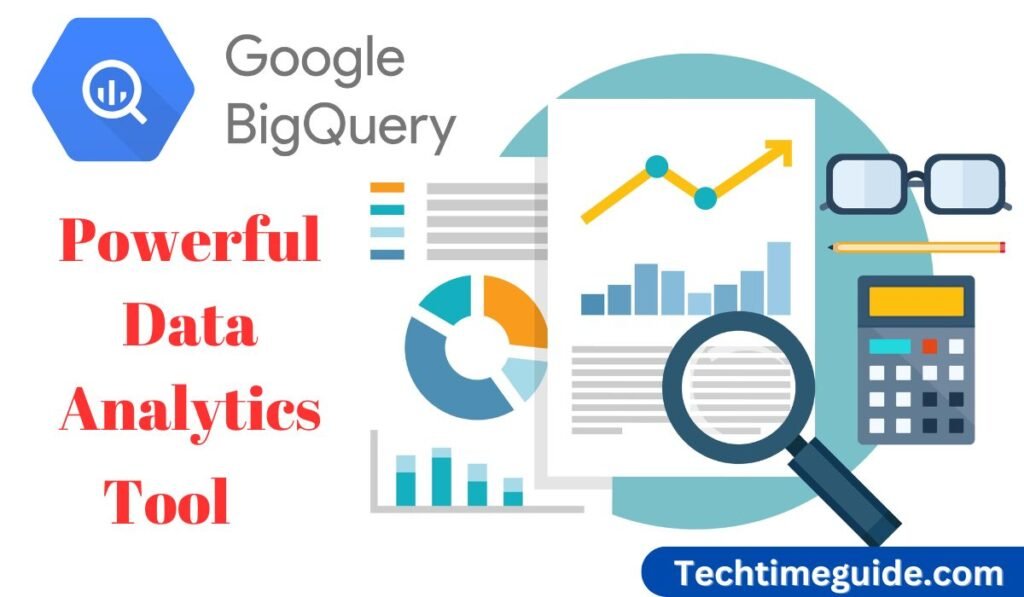Introduction to GCP Big Query
Hello Readers! In today’s digital age, data is king. With the exponential growth of data generated by businesses and individuals alike, finding efficient ways to store, process, and analyze this data is crucial. Google Cloud Platform’s (GCP) BigQuery emerges as a robust solution tailored for such tasks. Designed to handle massive datasets with ease, Gcp Big Query: Powerful Data Analytics For Mass Storage And Analysis Ezwontech.com offers unparalleled capabilities in data analytics, making it an indispensable tool for enterprises.
What is GCP BigQuery?
Gcp Big Query: Powerful Data Analytics For Mass Storage And Analysis Ezwontech.com is a fully-managed, serverless, multi-cloud data warehouse that enables super-fast SQL queries using the processing power of Google’s infrastructure. Unlike traditional data warehouses, which require significant time and resources for setup and maintenance, BigQuery eliminates these hurdles by providing a platform that is both scalable and easy to use.
Key Features of Gcp Big Query: Powerful Data Analytics For Mass Storage And Analysis Ezwontech.com
- Serverless Architecture: One of the most significant advantages of BigQuery is its serverless nature. This means that users do not need to worry about the underlying infrastructure, such as servers or storage. Google manages everything, allowing businesses to focus on data analysis rather than infrastructure management.
- Real-Time Analytics: BigQuery allows users to run real-time analytics on their data. This is crucial for businesses that need to make quick decisions based on the most current data available.
- Massive Scalability: BigQuery is built to handle datasets of any size. Whether you’re dealing with gigabytes or petabytes of data, BigQuery scales effortlessly, providing consistent performance.
- Integrated Machine Learning: With BigQuery ML, users can create and execute machine learning models using SQL queries. This integration simplifies the process of building predictive models and deploying them at scale.
- Secure and Compliant: Data security is a top priority with BigQuery. It offers robust security features, including encryption at rest and in transit, fine-grained access controls, and compliance with global standards like GDPR.
How GCP BigQuery Transforms Data Analytics
Efficiency in Data Handling
One of the standout features of Gcp Big Query: Powerful Data Analytics For Mass Storage And Analysis Ezwontech.com is its ability to process and analyze massive datasets with incredible speed. This is largely due to its distributed architecture, which breaks down large datasets into smaller chunks and processes them in parallel. As a result, complex queries that would take hours or even days to run on traditional systems can be completed in mere seconds or minutes with BigQuery.
Cost-Effective Analysis
BigQuery operates on a pay-as-you-go pricing model, which means businesses only pay for the data they query. This is a stark contrast to traditional data warehouses, which often require significant upfront investments in hardware and software. With BigQuery, businesses can scale their usage up or down based on their needs, ensuring cost efficiency without compromising performance.
Seamless Integration with GCP Ecosystem
BigQuery seamlessly integrates with other Google Cloud services, such as Google Analytics, Google Sheets, and Google Data Studio. This integration allows businesses to pull in data from various sources, analyze it in BigQuery, and then visualize the results using Google’s powerful visualization tools. This end-to-end integration simplifies the data pipeline and enhances productivity.
BigQuery Use Cases Across Industries

Retail
In the retail sector, data is generated from multiple sources, including sales transactions, customer feedback, and inventory systems. BigQuery enables retailers to analyze this data in real time, allowing for better inventory management, personalized marketing campaigns, and improved customer experiences.
Healthcare
Healthcare organizations deal with vast amounts of sensitive data, ranging from patient records to clinical trial results. BigQuery’s robust security features ensure that this data is protected while allowing healthcare providers to run complex queries that can lead to better patient outcomes and more efficient operations.
Finance
Financial institutions rely heavily on data to drive their decision-making processes. BigQuery allows these organizations to analyze market trends, detect fraudulent activities, and optimize investment strategies, all in real time. Its scalability ensures that even the largest datasets can be processed quickly and accurately.
Media and Entertainment
For media companies, understanding audience preferences and behavior is key to delivering content that resonates. BigQuery enables these companies to analyze vast amounts of data, from social media interactions to streaming metrics, helping them tailor content to audience demands and optimize their distribution strategies.
Optimizing Performance in BigQuery
Partitioned Tables
One of the ways to optimize performance in BigQuery is by using partitioned tables. Partitioning allows you to divide your data into segments based on a column, such as date. This reduces the amount of data scanned during queries, resulting in faster query performance and lower costs.
Clustering Tables
Clustering is another powerful feature in BigQuery that optimizes query performance. By clustering tables based on specific columns, BigQuery can quickly locate and retrieve relevant data, speeding up query execution times.
Materialized Views
Materialized views in BigQuery allow you to store the results of a query and reuse them in subsequent queries. This can significantly reduce the amount of processing required for repetitive queries, leading to faster performance and reduced costs.
BigQuery Best Practices
Use of Query Caching
BigQuery automatically caches query results for 24 hours. If the same query is run again within this period, BigQuery retrieves the results from the cache at no additional cost, saving both time and money. Leveraging this feature can greatly enhance performance for repetitive queries.
Avoiding SELECT *
While it might be tempting to use the SELECT * statement to retrieve all columns from a table, this can result in scanning more data than necessary, increasing both query time and cost. Instead, it’s advisable to specify only the columns you need.
Data Compression and Storage
BigQuery uses columnar storage with data compression, which reduces the amount of data scanned during queries. This not only improves performance but also reduces storage costs. Understanding how BigQuery compresses and stores data can help you optimize your data structures for better performance.
Conclusion
Gcp Big Query: Powerful Data Analytics For Mass Storage And Analysis Ezwontech.com stands out as a powerful and versatile tool for data analytics. Its ability to handle massive datasets, coupled with its real-time analytics, integrated machine learning, and cost-effective pricing model, makes it an essential component of any data-driven organization. Whether you’re in retail, healthcare, finance, or media, BigQuery offers the tools you need to transform your data into actionable insights.
Also Read More:
Business Intelligence Crm.sarjanaekonomi.co.id: A Complete Guide


